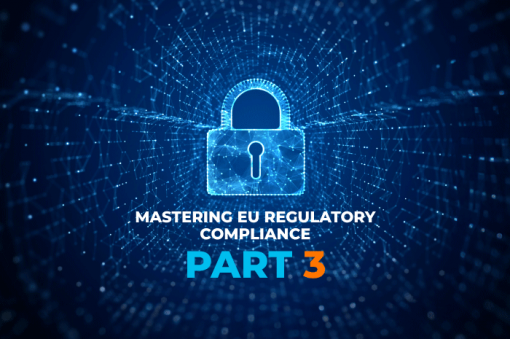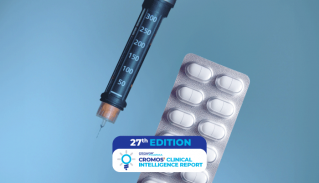
Do You Need a Data Protection Representative? Understanding GDPR’s Article 27 Requirement
Key Takeaways:
- When is a DPR Required?: Non-EU companies processing data of EU residents are required to appoint a DPR under Article 27 of the GDPR.
- DPR’s Responsibilities: The DPR facilitates communication between non-EU companies, EU data subjects, and regulatory authorities.
- Consequences of Non-Compliance: Failure to appoint a DPR when necessary can result in penalties, including fines of up to €10 million or 2% of global revenue.
For biotech companies and drug developers operating within the European Medicines Agency (EMA) jurisdiction, compliance with European Union (EU) regulations is crucial. Navigating these requirements involves understanding key roles like the Legal Representative (LR), Data Protection Officer (DPO), and Data Protection Representative (DPR). Each role has unique responsibilities, essential for clinical trials, data protection, and product approvals.
In previous articles, we discussed the Legal Representative and Data Protection Officer roles. Now, we conclude with the DPR. At the end of this article, you’ll find a summary comparing all three roles.
Is a Data Protection Representative Required? A Guide to GDPR’s Article 27
If your business handles personal data of EU residents but is based outside of the EU, you may be required to appoint a Data Protection Representative (DPR) to ensure compliance with the General Data Protection Regulation (GDPR). This requirement is set out in Article 27 of the GDPR, which mandates the appointment of a DPR for non-EU companies offering goods or services to individuals in the EU or monitoring their behavior.
Who Needs to Appoint a DPR?
A DPR is required for companies that:
- Have no EU presence but offer goods or services to EU residents, even if those services are free.
- Monitor the behavior of EU residents (e.g., tracking cookies or behavioral advertising).
There are exceptions, including for public sector organizations and companies that process EU data only “occasionally,” though the definition of “occasional” remains unclear.
What Does a DPR Do?
The primary function of the DPR is to act as a point of contact between your organization and both EU-based individuals (data subjects) and supervisory authorities. The DPR is responsible for:
- Holding records of data processing activities under Article 30 of the GDPR.
- Making these records available to authorities if requested.
- Facilitating communication between your company and the supervisory authorities in case of any compliance issues or data breaches.
Additionally, the DPR may bear some liability if your company fails to meet GDPR requirements, as outlined in Recital 80 of the GDPR and further confirmed by the European Data Protection Board (EDPB) in its guidance
Liability and Consequences
Failure to appoint a DPR when required can lead to significant fines, up to €10 million or 2% of global annual revenue, as per Article 83 of the GDPR.
Key Roles in EU Compliance: Understanding the Differences Between Legal Representatives, DPOs, and DPRs
We’ve explored three important roles: Legal Representative (LR), Data Protection Officer (DPO), and Data Protection Representative (DPR). Now, let’s summarize the key differences between them. Each role serves a specific function in ensuring compliance with EU regulations, from clinical trial oversight (LR) to data protection management (DPO) and communication for non-EU companies (DPR). Understanding these roles is essential for biotech and pharmaceutical companies to navigate regulatory and data protection requirements in the EU, safeguarding both research integrity and patient rights.
Key Differences Between LR, DPO, and DPR:
- Legal Representative: primarily handles regulatory matters related to clinical trials and product authorization for non-EU sponsors. The LR assumes some legal responsibility for the trial’s compliance within the EU. (Read the Part 1)
- Data Protection Officer: focuses on ensuring GDPR compliance across the company, specifically managing personal data and sensitive health information related to clinical trials or commercial activities. (Read the Part 2)
- Data Protection Representative: acts as the EU-based point of contact for data protection issues for non-EU companies processing the personal data of EU citizens. The DPR is more focused on communication and ensuring data protection rights are upheld.
Conclusion
For biotech and pharmaceutical companies aiming to conduct clinical trials and commercialize products in EMA countries, understanding and implementing these roles—Legal Representative, Data Protection Officer, and Data Protection Representative—is crucial. While each role serves distinct functions, they collectively ensure compliance with the complex regulatory and data protection landscape of the EU. Failure to assign these roles appropriately can lead to delays, penalties, or legal complications, hindering the development and commercialization of innovative medical products.
As the demand for clinical trials in the EU grows, these roles will continue to play a pivotal role in protecting both patient rights and the integrity of the research process.
By understanding and implementing the necessary regulatory and data protection roles, biotech companies can ensure smoother operations in the EU and build trust with patients and authorities alike.
References:
- European Medicines Agency (EMA). “Clinical Trials Regulation (EU No 536/2014).”
- General Data Protection Regulation (GDPR) (EU) 2016/679.
- European Commission. “Guidance on the Appointment of Data Protection Officers.”
- European Data Protection Board (EDPB). “Roles and Responsibilities under GDPR.”






























